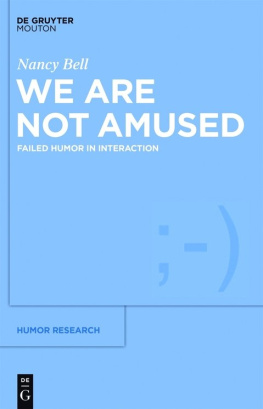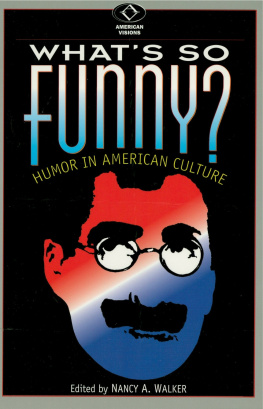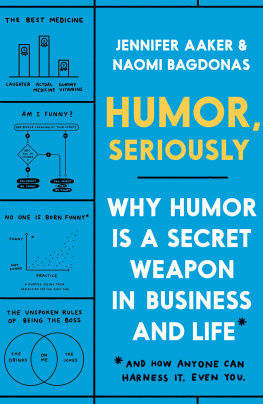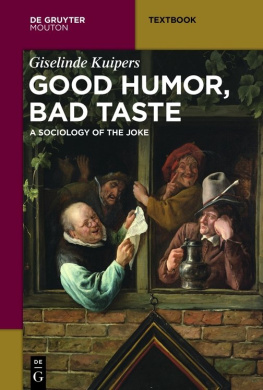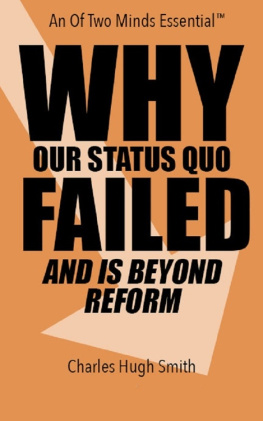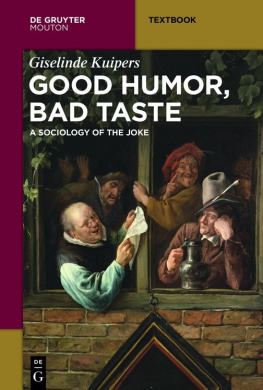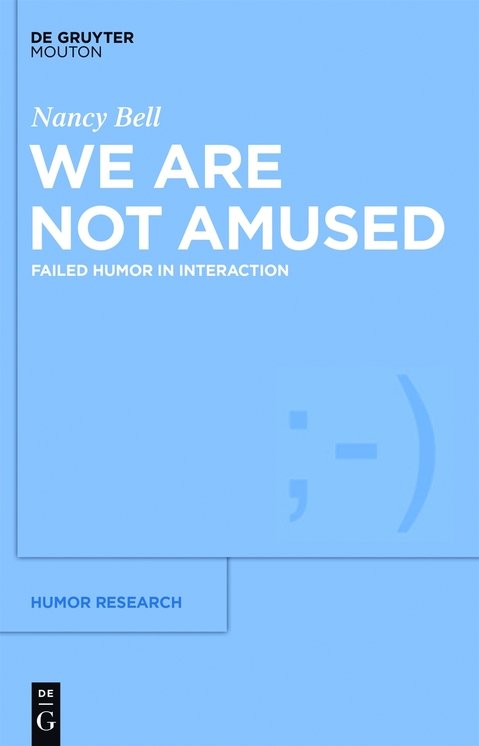8.1 Summary of findings
are reproduced here, with summaries of their findings:
What are the different ways that humor can fail? For example, is failure due to a lack of understanding, a lack of appreciation, or an offensive message?
Unsuccessful humor is most commonly thought to occur when the audience is not amused, and secondly when the audience fails to understand a joke, probably because these are crucial stages in the processing of humor. In this book, however, I opted to analyze failed humor in the broadest sense, which included examining a number of triggers of failure that are identical for both serious and non-serious communication. This comprehensive approach to unsuccessful humor allowed for comparisons to be made, as discussed below, between failure in serious and playful discourse. Ultimately, however, it is those triggers of failure that are fundamental to humor that tell us the most not only about humor, but about miscommunication in general and about societal norms and values regarding humor.
In what ways is the failure of humor similar to or different from the failure of other speech acts or events?
In many ways, the failure of humor parallels other types of communicative failure, as it is triggered by problems common to all communication, such as the use of language that is unfamiliar to the hearer. Although common to all communication, the focus here on unsuccessful humor foregrounded the issue of serious/non-serious keying as an interpretive challenge. The analysis suggested that this should also be taken seriously as an important discursive resource and as an important factor in miscommunication, including, but not limited to failed humor. The other triggers that were common to both serious and playful communication seemed to be treated similarly, although a tendency to abandon repair in humorous talk was noted. Not understanding humor was demonstrated to be quite different from not understanding serious talk, as were the social consequences, as noted below. Similarly, the failure to appreciate humor is often seen as a clear (usually negative) statement about the hearers character, unlike the failure to appreciate other aesthetic forms of talk, such as poetry. As a mode of communication, unsuccessful humor fails in some ways that are exclusive to this mode, and are, accordingly, treated in ways specific to it.
How do speakers manage failure of their attempts at humor and how do hearers react to unsuccessful attempts at humor? Are their reactions similar across different types of failures?
The strategies used by both speakers and hearers tell us about the special status of humor itself, as well as the social value we place on humor and having a good sense of humor. As a face threat to both speaker and hearer, the failure of humor is negotiated in different ways by each party, and the specific strategies used, as well as the extent to which the response is mitigated or aggravated vary widely. Furthermore, the specific type of failure changes the type and degree of face threat that each party is exposed to, further complicating the picture of management. The different types of failure also help us recognize that there are different degrees of failure as well as success. Finally, the perception of humor as merely fun, versus humor that also functions as an attempt to instigate social or discursive change by communicating a serious message affects the way that its failure is managed. The social consequences of failed humor can range from a minimal disruption in communication to the severing of a relationship.
How do social variables affect the negotiation of failed humor in interaction?
The same types of social variables that affect serious conversation also affect the ways that failed humor is received and negotiated in interaction. Typically, sociolinguists name race, class, gender, and social status as four important qualities that influence how interlocutors speak and are spoken to. Furthermore, the relationship that obtains among interlocutors is also important. Finally, any number of factors that constitute what we refer to as context are also influential in constructing how we speak. Some of these include the physical space, time of day, and conversational goals. It is virtually certain that the same array of factors influence both serious and non-serious discourse; however, the emphasis seems to be different for each type. The variables that were identified through this analysis as being particularly significant were topic, speaker status, and most importantly, the interlocutors social relationship. This last is in keeping with the role of humor as a way of managing social relationships. The degree of closeness between interactants strongly influences how they react to the failure of humor. In particular, humor that fails among intimates may well receive the strongest rebuke.
8.2 Implications for the study of language and humor

